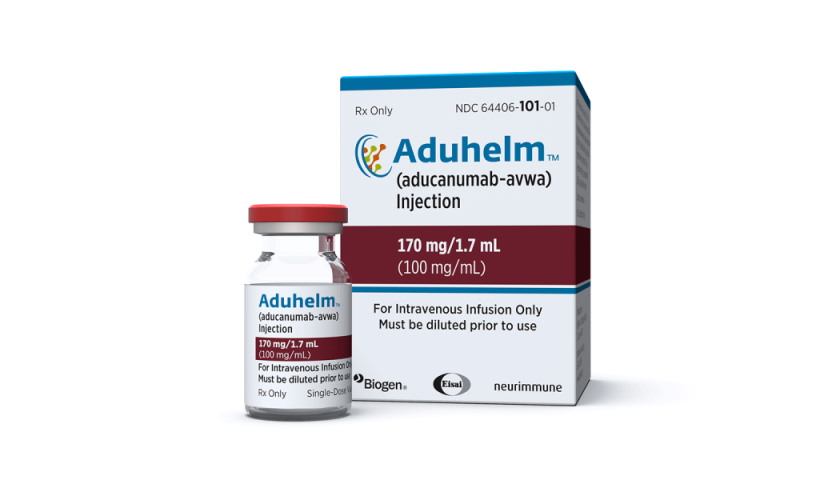Biogen bites back at critics of Aduhelm after drug's slow start

Biogen has reported $2m in sales for newly-launched Alzheimer's therapy Aduhelm that came in below its expectations, prompting the company to issue a rebuke to what it says is "extensive misinformation and misunderstanding" about the drug.
In an open letter, R&D chief Al Sandrock tackled a number of the criticisms levelled at the FDA's decision to award accelerated approval to Aduhelm (aducanumab), which he said had taken "a turn outside the boundaries of legitimate scientific deliberation."
He took issue with the repeated assertions that approval had been based on a post hoc analysis that applied a filter to interpret the data in a certain way, asserting that the primary and secondary endpoints had been pre-specified in the phase 3 trial protocols, before the first patient was enrolled.
That data "had already been collected at the sites by the time the trials were prematurely terminated" in March 2019, write Sandrock.
Responding to critics that maintain prior antibody therapies targeting amyloid in the brain have failed to demonstrate benefit, he also said these drugs "were not specific for aggregated forms of amyloid beta, or targeted soluble monomeric amyloid beta, or were deficient in effector function."
He also refuted allegations that Biogen had to close a relationship with FDA during Aduhelm's late-stage development and review, saying this "it is important to recognise that collaboration between industry and regulatory agencies is common, appropriate and beneficial."
Finally, he said opting for accelerated approval – another bone of contention for critics who are worried about the time it will take to carry out a confirmatory trial – simply brings drugs for Alzheimer's into line with a regulatory pathway that has already transformed the treatment of cancer as well as other diseases like HIV/AIDS, sickle cell anaemia, Duchenne muscular dystrophy and multiple sclerosis.
Chief executive Michel Vounatsos also took the opportunity provided by the company's second-quarter results call to fire a broadside at critics, saying that every day that passes means around 1,000 people in the US move from the early to moderate or severe stages of Alzheimer's and become ineligible for treatment with Aduhelm.
"Whatever the motives of the controversy are, the ones who are potentially misled, confused, denied health, are the patients," he said.
Biogen has previously said it expects take-up of the drug to be modest this in 2021, as a result of the need to titrate patients to dose, getting sites ready to diagnose and treat patients with the infused drug, and the time it will take to get payer coverage, but the $2 million in second quarter sales was lower than predicted.
It's also gearing up to spend around $600 million on Aduhelm's rollout, said chief financial officer Mike McDonnell on the call, so will need sales to pick up quickly to recoup its substantial investment in the drug.
Vounatsos also told analysts that while some large medical centres have indicated they will not be making Aduhelm available, so far around a third of the 900 centres expected to be in line to deliver the drug after approval have indicated they will do so.
The first cases of Medicare programmes pre-approving Aduhelm treatment have also come in, he added, and he welcomed the recently announced review of coverage by the US government, saying it would "provide additional clarity on coverage for Medicare beneficiaries and drive consistency of access across the country."
Biogen also named Rachid Izzar as head of a newly created Alzheimer's disease and dementia unit, moving from a current tole overseeing the company's biosimilars business.












